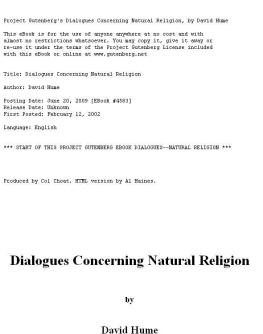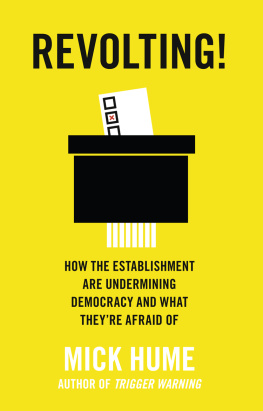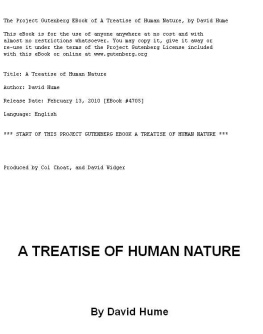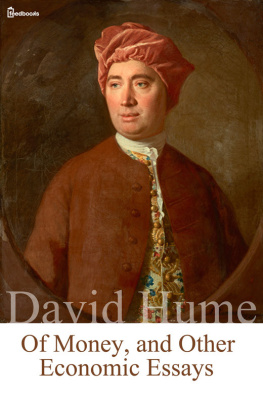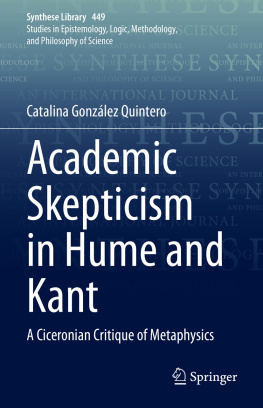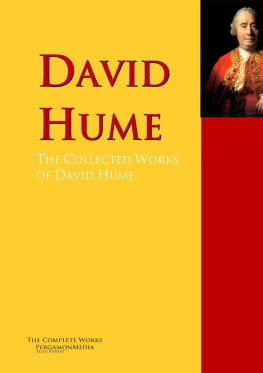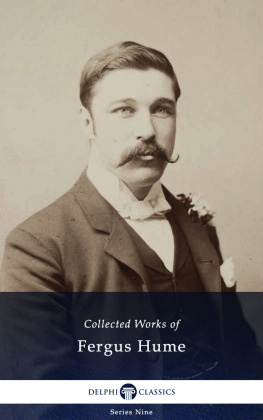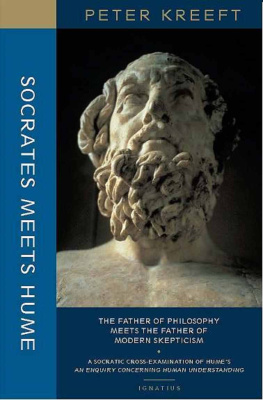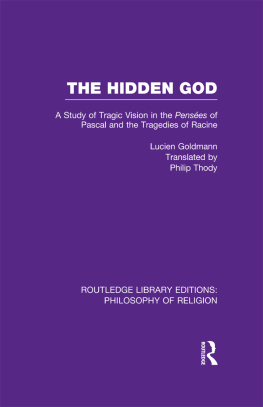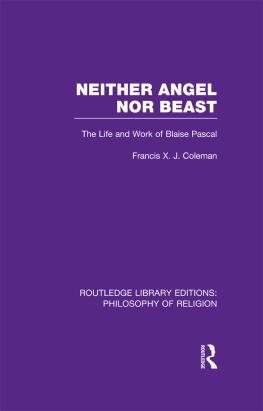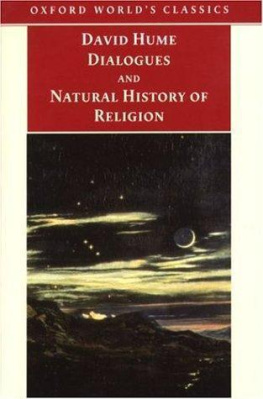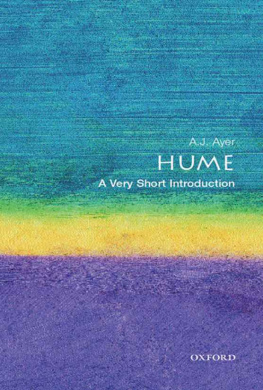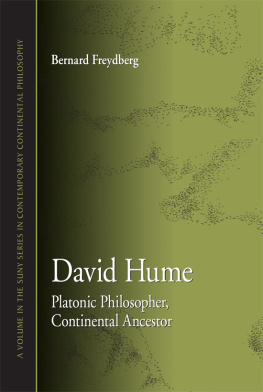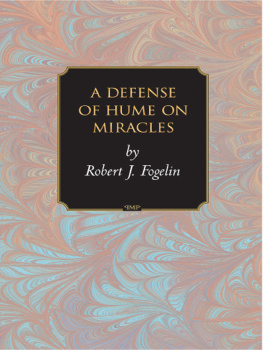Hume - Dialogues Concerning Natural Religion
Here you can read online Hume - Dialogues Concerning Natural Religion full text of the book (entire story) in english for free. Download pdf and epub, get meaning, cover and reviews about this ebook. City: La Vergne, year: 2019;2010, publisher: Neeland Media LLC, genre: Religion. Description of the work, (preface) as well as reviews are available. Best literature library LitArk.com created for fans of good reading and offers a wide selection of genres:
Romance novel
Science fiction
Adventure
Detective
Science
History
Home and family
Prose
Art
Politics
Computer
Non-fiction
Religion
Business
Children
Humor
Choose a favorite category and find really read worthwhile books. Enjoy immersion in the world of imagination, feel the emotions of the characters or learn something new for yourself, make an fascinating discovery.
Dialogues Concerning Natural Religion: summary, description and annotation
We offer to read an annotation, description, summary or preface (depends on what the author of the book "Dialogues Concerning Natural Religion" wrote himself). If you haven't found the necessary information about the book — write in the comments, we will try to find it.
Hume: author's other books
Who wrote Dialogues Concerning Natural Religion? Find out the surname, the name of the author of the book and a list of all author's works by series.
Dialogues Concerning Natural Religion — read online for free the complete book (whole text) full work
Below is the text of the book, divided by pages. System saving the place of the last page read, allows you to conveniently read the book "Dialogues Concerning Natural Religion" online for free, without having to search again every time where you left off. Put a bookmark, and you can go to the page where you finished reading at any time.
Font size:
Interval:
Bookmark:
Project Gutenberg's Dialogues Concerning Natural Religion, by David Hume
This eBook is for the use of anyone anywhere at no cost and with
almost no restrictions whatsoever. You may copy it, give it away or
re-use it under the terms of the Project Gutenberg License included
with this eBook or online at www.gutenberg.net
Title: Dialogues Concerning Natural Religion
Author: David Hume
Posting Date: June 20, 2009 [EBook #4583]
Release Date: Unknown
First Posted: February 12, 2002
Language: English
*** START OF THIS PROJECT GUTENBERG EBOOK DIALOGUES--NATURAL RELIGION ***
Produced by Col Choat. HTML version by Al Haines.
| PART 1 | PART 2 | PART 3 | PART 4 |
| PART 5 | PART 6 | PART 7 | PART 8 |
| PART 9 | PART 10 | PART 11 | PART 12 |
It has been remarked, my HERMIPPUS, that though the ancient philosophers conveyed most of their instruction in the form of dialogue, this method of composition has been little practised in later ages, and has seldom succeeded in the hands of those who have attempted it. Accurate and regular argument, indeed, such as is now expected of philosophical inquirers, naturally throws a man into the methodical and didactic manner; where he can immediately, without preparation, explain the point at which he aims; and thence proceed, without interruption, to deduce the proofs on which it is established. To deliver a SYSTEM in conversation, scarcely appears natural; and while the dialogue-writer desires, by departing from the direct style of composition, to give a freer air to his performance, and avoid the appearance of Author and Reader, he is apt to run into a worse inconvenience, and convey the image of Pedagogue and Pupil. Or, if he carries on the dispute in the natural spirit of good company, by throwing in a variety of topics, and preserving a proper balance among the speakers, he often loses so much time in preparations and transitions, that the reader will scarcely think himself compensated, by all the graces of dialogue, for the order, brevity, and precision, which are sacrificed to them.
There are some subjects, however, to which dialogue-writing is peculiarly adapted, and where it is still preferable to the direct and simple method of composition.
Any point of doctrine, which is so obvious that it scarcely admits of dispute, but at the same time so important that it cannot be too often inculcated, seems to require some such method of handling it; where the novelty of the manner may compensate the triteness of the subject; where the vivacity of conversation may enforce the precept; and where the variety of lights, presented by various personages and characters, may appear neither tedious nor redundant.
Any question of philosophy, on the other hand, which is so OBSCURE and UNCERTAIN, that human reason can reach no fixed determination with regard to it; if it should be treated at all, seems to lead us naturally into the style of dialogue and conversation. Reasonable men may be allowed to differ, where no one can reasonably be positive. Opposite sentiments, even without any decision, afford an agreeable amusement; and if the subject be curious and interesting, the book carries us, in a manner, into company; and unites the two greatest and purest pleasures of human life, study and society.
Happily, these circumstances are all to be found in the subject of NATURAL RELIGION. What truth so obvious, so certain, as the being of a God, which the most ignorant ages have acknowledged, for which the most refined geniuses have ambitiously striven to produce new proofs and arguments? What truth so important as this, which is the ground of all our hopes, the surest foundation of morality, the firmest support of society, and the only principle which ought never to be a moment absent from our thoughts and meditations? But, in treating of this obvious and important truth, what obscure questions occur concerning the nature of that Divine Being, his attributes, his decrees, his plan of providence? These have been always subjected to the disputations of men; concerning these human reason has not reached any certain determination. But these are topics so interesting, that we cannot restrain our restless inquiry with regard to them; though nothing but doubt, uncertainty, and contradiction, have as yet been the result of our most accurate researches.
This I had lately occasion to observe, while I passed, as usual, part of the summer season with CLEANTHES, and was present at those conversations of his with PHILO and DEMEA, of which I gave you lately some imperfect account. Your curiosity, you then told me, was so excited, that I must, of necessity, enter into a more exact detail of their reasonings, and display those various systems which they advanced with regard to so delicate a subject as that of natural religion. The remarkable contrast in their characters still further raised your expectations; while you opposed the accurate philosophical turn of CLEANTHES to the careless scepticism of PHILO, or compared either of their dispositions with the rigid inflexible orthodoxy of DEMEA. My youth rendered me a mere auditor of their disputes; and that curiosity, natural to the early season of life, has so deeply imprinted in my memory the whole chain and connection of their arguments, that, I hope, I shall not omit or confound any considerable part of them in the recital.
After I joined the company, whom I found sitting in CLEANTHES's library, DEMEA paid CLEANTHES some compliments on the great care which he took of my education, and on his unwearied perseverance and constancy in all his friendships. The father of PAMPHILUS, said he, was your intimate friend: The son is your pupil; and may indeed be regarded as your adopted son, were we to judge by the pains which you bestow in conveying to him every useful branch of literature and science. You are no more wanting, I am persuaded, in prudence, than in industry. I shall, therefore, communicate to you a maxim, which I have observed with regard to my own children, that I may learn how far it agrees with your practice. The method I follow in their education is founded on the saying of an ancient, "That students of philosophy ought first to learn logics, then ethics, next physics, last of all the nature of the gods." [Chrysippus apud Plut: de repug: Stoicorum] This science of natural theology, according to him, being the most profound and abstruse of any, required the maturest judgement in its students; and none but a mind enriched with all the other sciences, can safely be entrusted with it.
Are you so late, says PHILO, in teaching your children the principles of religion? Is there no danger of their neglecting, or rejecting altogether those opinions of which they have heard so little during the whole course of their education? It is only as a science, replied DEMEA, subjected to human reasoning and disputation, that I postpone the study of Natural Theology. To season their minds with early piety, is my chief care; and by continual precept and instruction, and I hope too by example, I imprint deeply on their tender minds an habitual reverence for all the principles of religion. While they pass through every other science, I still remark the uncertainty of each part; the eternal disputations of men; the obscurity of all philosophy; and the strange, ridiculous conclusions, which some of the greatest geniuses have derived from the principles of mere human reason. Having thus tamed their mind to a proper submission and self-diffidence, I have no longer any scruple of opening to them the greatest mysteries of religion; nor apprehend any danger from that assuming arrogance of philosophy, which may lead them to reject the most established doctrines and opinions.
Font size:
Interval:
Bookmark:
Similar books «Dialogues Concerning Natural Religion»
Look at similar books to Dialogues Concerning Natural Religion. We have selected literature similar in name and meaning in the hope of providing readers with more options to find new, interesting, not yet read works.
Discussion, reviews of the book Dialogues Concerning Natural Religion and just readers' own opinions. Leave your comments, write what you think about the work, its meaning or the main characters. Specify what exactly you liked and what you didn't like, and why you think so.

